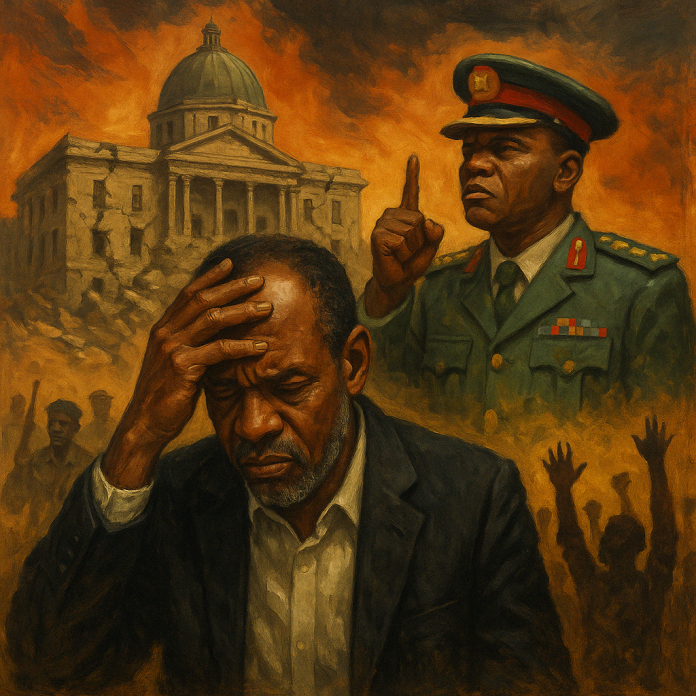By BUKAR Mohammed
There are moments in the life of a nation when absurdity ceases to be amusing and becomes an indictment of everything we claim to stand for. Such is the case with the recent outburst of one IBAS—a man clutching at the straws of relevance, drowning in a sea of self-importance, yet brazen enough to demand that the legitimate occupant of a duly recognized office come before him on Good Friday to explain why he should be reinstated. Reinstated? One cannot help but laugh—a long, pained laugh that masks the deep frustration of watching our democracy teeter on the brink of mockery.
In Hausa, there’s a saying that captures this sort of madness perfectly: wai barawo da karfin hali—a thief emboldened by sheer audacity. That, in essence, is the tragedy we now witness: an illegal occupant, drunk on delusions of grandeur, daring to question the legitimacy of one whose authority is rooted in law and due process. Ikon Allah—only God’s power can explain such brazenness.
What is more disturbing is not just the character of IBAS himself, but the collective silence—or worse, the complicity—of those who ought to speak truth to power. I lay part of the blame at the feet of some members of the press who, in an unforgivable act of journalistic malpractice, attempted to rebrand a military administrator as a “sole administrator,” as though euphemisms could sanitize illegality. It is this kind of narrative manipulation that erodes public trust and normalizes aberrations. When journalists become mouthpieces for power instead of mirrors for truth, democracy withers.
Let the records be clear: this moment will go down in history as one of the worst abuses of power in our democratic journey. It exposes the dangerous fragility of our institutions and drags Nigeria dangerously close to the status of a banana republic—where illegality is weaponized and impunity is emboldened from the very top. Yes, from the presidency itself, whose silence and complicity have provided fertile ground for this madness to fester.
It is no longer just about one man’s delusion. The greed and ambition of a single individual are now on the verge of causing irreversible national damage—threatening our primary sources of revenue, discrediting the integrity of government institutions, and risking the social fabric of multiple communities. A nation already battling economic hardship cannot afford the chaos and spillage that such recklessness will unleash.
Make no mistake: IBAS is not a lone actor in this farce. He is both symptom and symbol of a larger decay—where the rule of law is undermined, institutions are mocked, and delusion is mistaken for entitlement. And yet, rather than being condemned, he is indulged by a system that seems too weary or too compromised to draw a line in the sand.
We must ask ourselves: How did we get here? How did we come to the point where power is not earned but arrogated? Where illegality walks tall while legitimacy is summoned to explain itself? The answer lies in years of institutional decay, selective outrage, and a media that sometimes chooses convenience over courage.
But let this be a warning to all purveyors of impunity: democracy, though battered, is not dead. The rule of law, though mocked, still breathes. And the people, though weary, are watching.
IBAS may enjoy his moment in the sun, but history is rarely kind to those who confuse noise for legitimacy and arrogance for authority.
BUKAR Mohammed is a governance, policy, and public affairs analyst from Kano.
Share your story or advertise with us: Whatsapp: +2347068606071 Email: info@newspotng.com













 NEWSPOT NIGERIA DAILY PULSE
NEWSPOT NIGERIA DAILY PULSE  May 07, 2025
May 07, 2025



